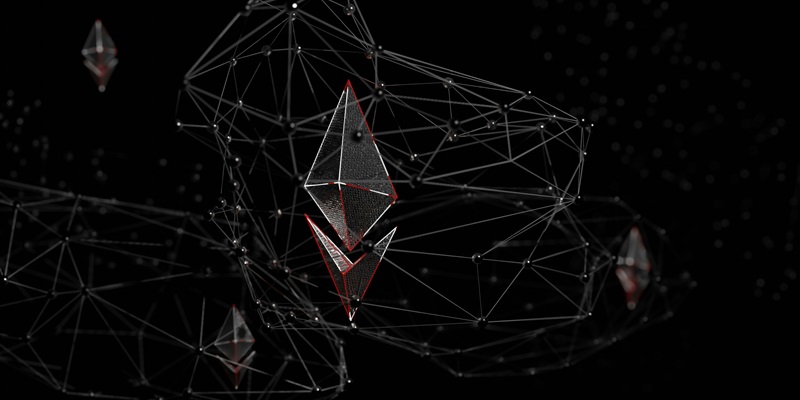M2i Global has officially launched Ethereum Reserve, a groundbreaking blockchain-focused entity dedicated to advancing Ethereum development and optimizing treasury management. This innovative initiative brings Ethereum Reserve into the core of M2i’s broader ecosystem, with a primary focus on acquiring Ethereum as a reserve asset. By leveraging Ethereum’s blockchain technology, M2i aims to merge traditional commodity management with modern blockchain technology to create an immutable ledger that ensures transparency in tracing the sourcing, transportation, and processing of minerals. This approach aligns with ethical sourcing standards and is designed to strengthen trust among stakeholders.
Strategic Partnerships and Blockchain Integration
Leveraging Komodo Capital’s Expertise
In a significant move to bolster the growth of Ethereum Reserve, M2i has partnered with Komodo Capital, an Australian firm known for its specialization in mergers and acquisitions. This strategic partnership aims to capitalize on Komodo Capital’s extensive network, which includes affiliations with over 25 mining companies. Through these connections, Ethereum Reserve seeks to enhance its foothold in both the mining and blockchain sectors. M2i’s leadership is optimistic that Ethereum’s potential to revolutionize commodity management is substantial, offering real-time tracking and cost-saving solutions that bridge the gap between traditional and digital commodities.
Komodo Capital’s involvement is expected to provide essential support by bringing in-depth knowledge and strong relationships within the mining industry. This collaboration aims to create a synergistic effect, combining M2i’s technological expertise with Komodo Capital’s experience in managing mergers, acquisitions, and strategic investments. Through this partnership, Ethereum Reserve is poised to set new standards in ethical sourcing and transparency in the commodity market, reinforcing M2i’s vision of integrating advanced technology with traditional industry practices.
Regulatory Clarity and Technological Expansion
The recent classification of Ethereum as a non-security by the U.S. Securities and Exchange Commission (SEC) has provided much-needed regulatory clarity, enabling M2i to fully embrace and expand its ventures into Ethereum technology. This regulatory milestone allows M2i to confidently advance its blockchain initiatives, including staking Ethereum and establishing large validation nodes crucial for digital voting rights. Furthermore, M2i plans to capitalize on this clarity by developing Layer-2 applications that leverage Ethereum’s robust developer community, aiming to enhance global market access and broaden the company’s digital operations.
This newfound regulatory certainty allows M2i not only to proceed with its current projects but also to explore new, innovative applications of blockchain technology. The emphasis on creating validation nodes and staking underscores the company’s commitment to fully leveraging Ethereum’s capabilities. Additionally, these efforts are anticipated to contribute to cost reductions and improved efficiency in commodity management. The focus on Layer-2 applications also highlights M2i’s strategy to harness the power of the developer community, potentially leading to a more seamless integration of blockchain solutions across various sectors.
National Defense and Economic Security
Securing Critical Minerals
In addition to its blockchain initiatives, M2i Global is placing significant emphasis on securing critical minerals through its subsidiary, U.S. Minerals and Metals Corp. This subsidiary is focused on providing vital services that support national defense and economic security. M2i collaborates with the U.S. Federal Government to establish a Strategic Mineral Reserve. This initiative addresses global shortages of essential minerals and metals, ensuring a stable supply crucial for various industrial and technological applications. The dual approach of focusing on both blockchain technology and critical mineral reserves highlights M2i’s commitment to innovation and sustainability.
Securing critical minerals is not only about economic stability but also about national security. The Strategic Mineral Reserve aims to mitigate potential supply chain disruptions and provide a reliable source of necessary materials for the defense industry. M2i’s proactive approach in this area underscores its dedication to addressing global challenges through strategic planning and collaboration with federal authorities. By diversifying its focus, M2i is building a robust framework that supports both modern technological advancements and traditional resource management.
Ethical Sourcing and Market Leadership
M2i Global has announced the launch of Ethereum Reserve, a pioneering entity aimed at propelling the development of Ethereum and enhancing treasury management. This forward-thinking project integrates Ethereum Reserve into the central framework of M2i’s expansive ecosystem, with a primary focus on acquiring Ethereum as a key reserve asset. Utilizing Ethereum’s advanced blockchain technology, M2i seeks to blend traditional commodity management with contemporary blockchain solutions. The goal is to establish an immutable ledger that provides transparent tracking of mineral sourcing, transportation, and processing. This initiative is closely aligned with ethical sourcing standards, aiming to bolster trust among stakeholders by ensuring transparency and accountability throughout the supply chain. Ethereum Reserve stands as a significant step in merging conventional practices with innovative technology, showcasing M2i Global’s commitment to ethical and transparent business operations.

